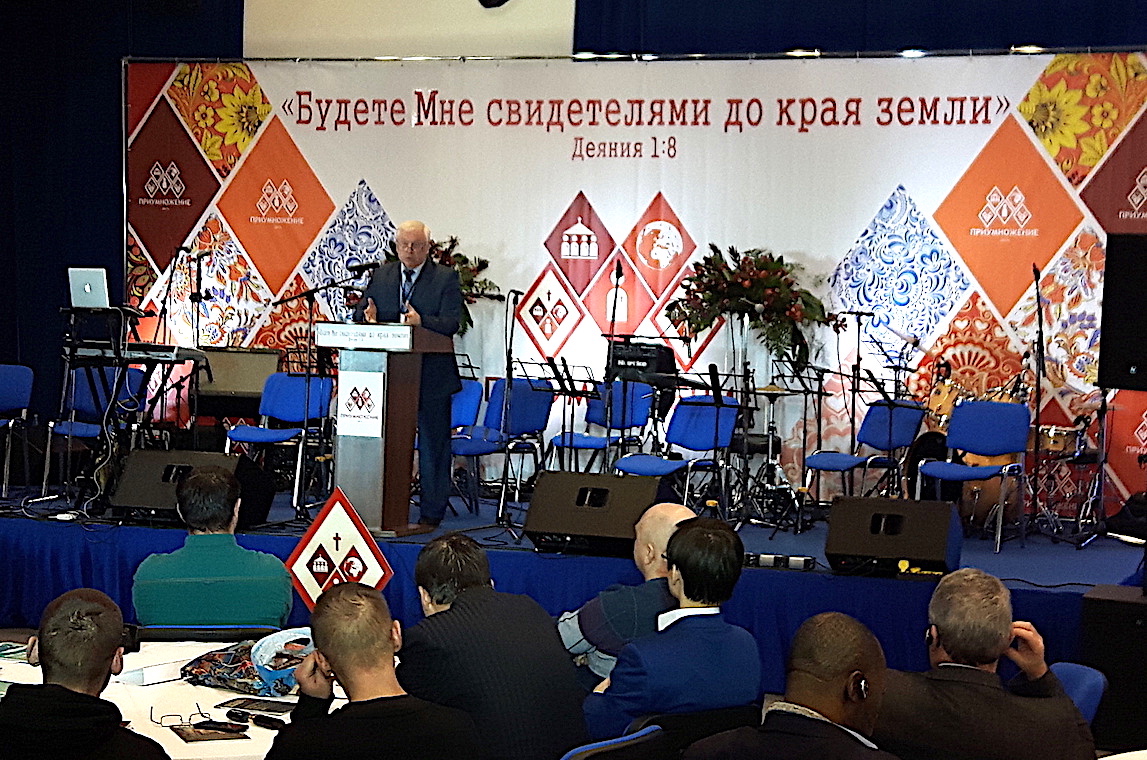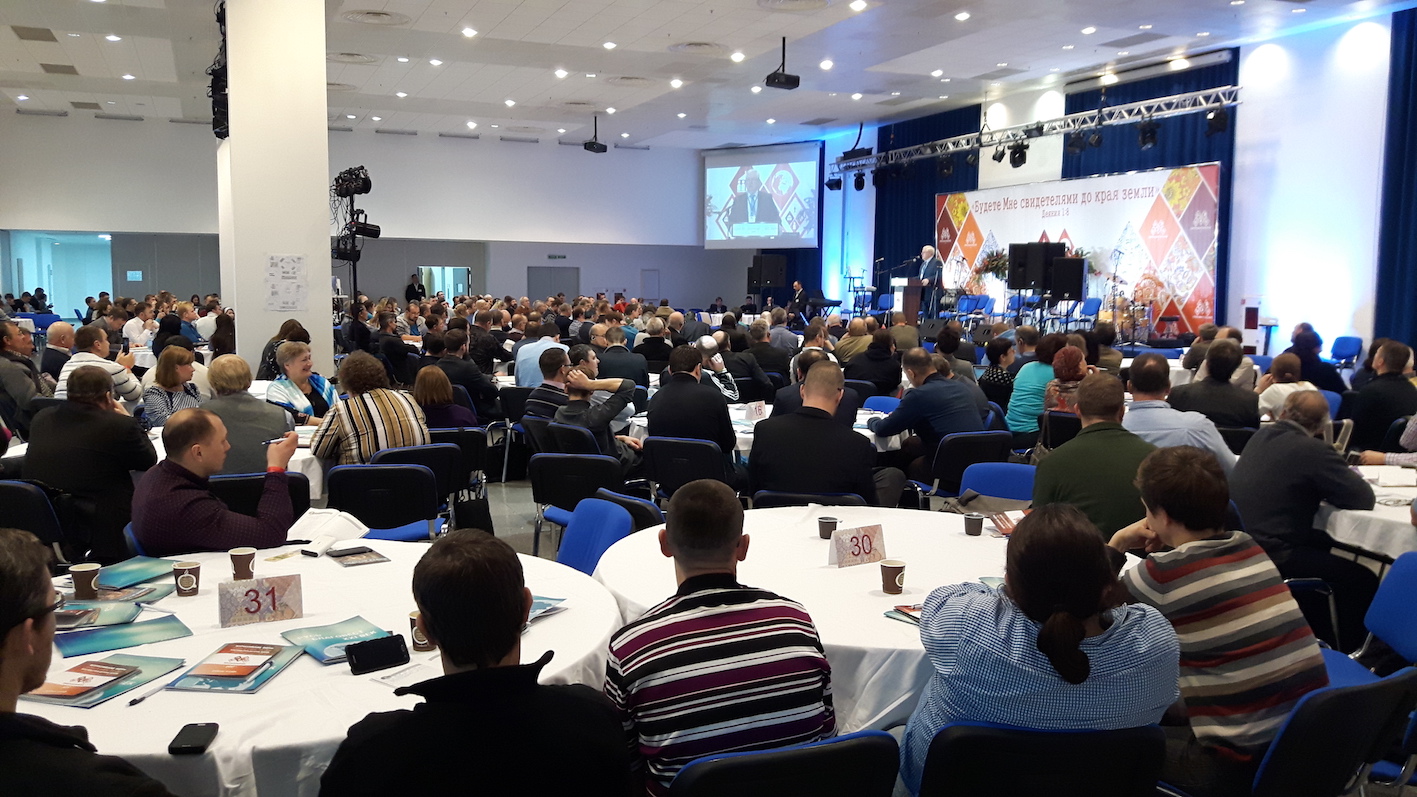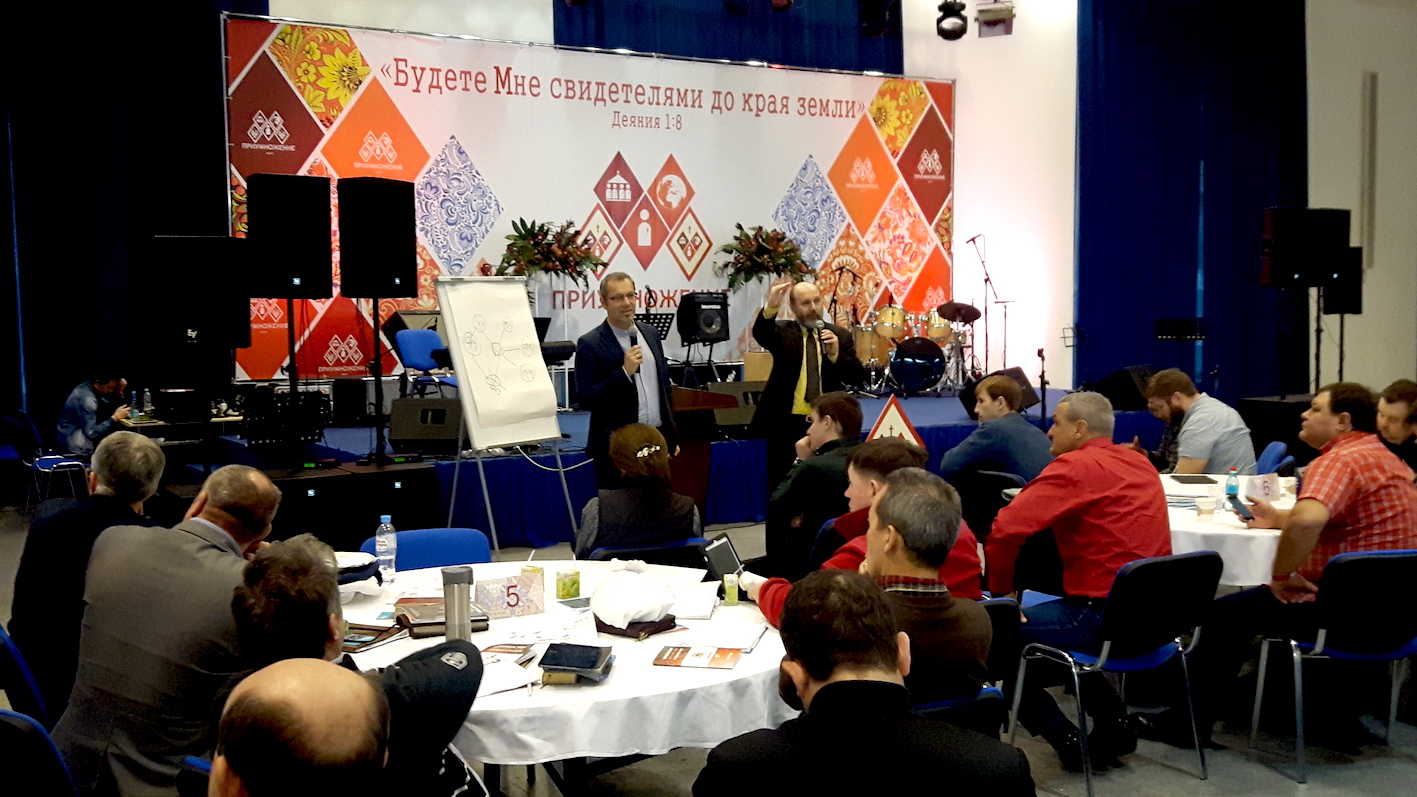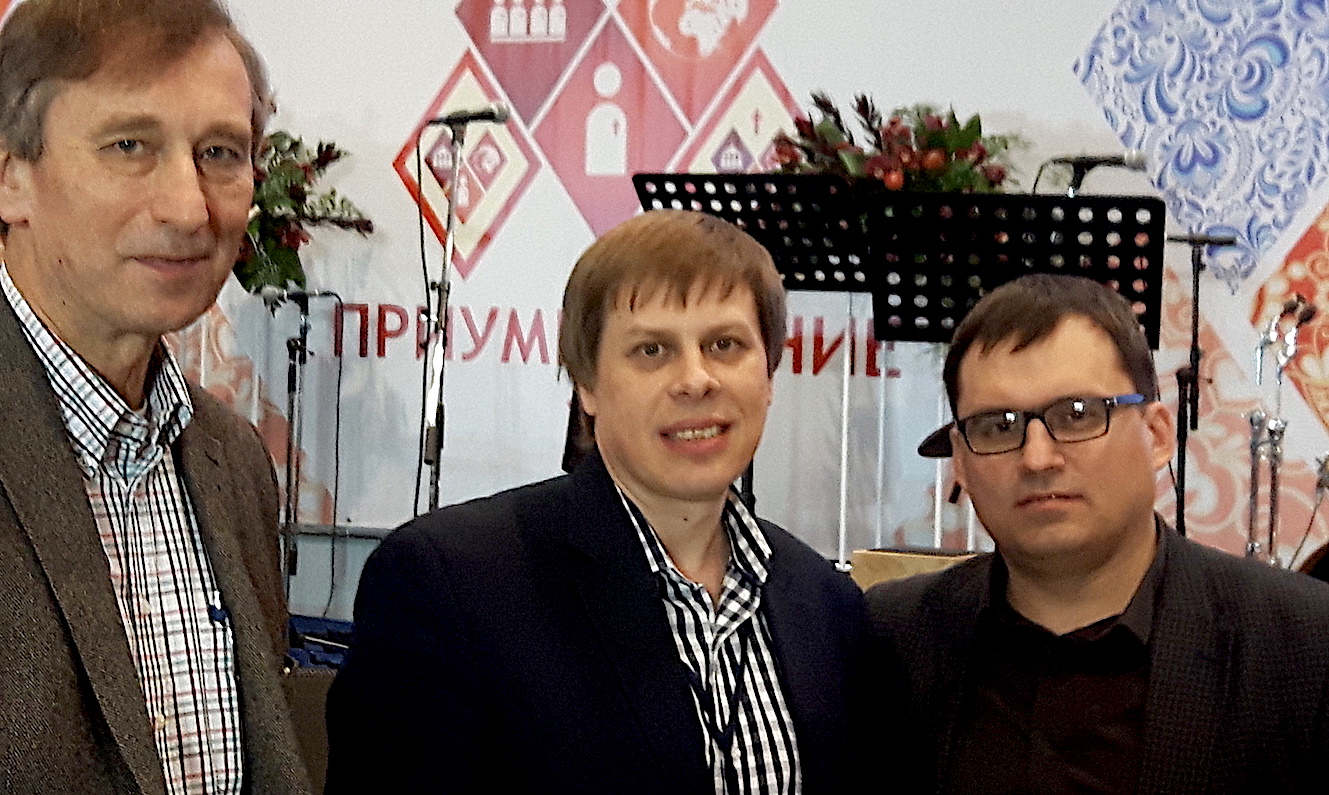'Multiply' in Moscow
'Multiply' in Moscow
 The Russian Baptist Union organized the Mission Conference “Multiply” from November 29 – December 2, 2017 in Moscow, Russia. It commenced with the grand presentation of M4 church planting program by Josif Makarenko, the mission director and Aleksey Smirnov, the Union’s president preaching on the Great Commission.
The Russian Baptist Union organized the Mission Conference “Multiply” from November 29 – December 2, 2017 in Moscow, Russia. It commenced with the grand presentation of M4 church planting program by Josif Makarenko, the mission director and Aleksey Smirnov, the Union’s president preaching on the Great Commission.
The meeting gathered over 600 people, mainly pastors and leaders from all over Russia and Belarus as well as a number of international guests. There were leaders from the Billy Graham Evangelistic Association, Lausanne Movement, International Mission Board of Southern Baptist Convention, SEND International, and others who lead mission organizations or local churches in Cuba, Ghana, Germany, Jamaica, Japan, New Zealand, Norway, Poland, Syria and USA.
The mission strategy of Baptist Union in Russia is called M4, mainly because its primary principles comes from the M4 church planting programme although other aspects of mission work are included too:
1. Discipleship, responsible leader – Amir Usmonov from the Black Sea Region, emphasized that the ultimate goal of every church member is to be a disciple of Christ. The stress was laid on the multiplying discipleship which effects in the growth of local congregations.
2. Cross cultural mission, responsible leader – Dmitry Mizichenko from Ulyanovsk, reminded that there are numerous ethnic groups and nations in Russia. The union has selected 12 such ethnic groups that are still unreached. The goal is to translate the Holy Scriptures, grow indigenous leaders and plant new congregations.
 3. International mission, responsible leader – Andrey Dziuba from Ufa, pointed out that the union’s goal is to be involved in mission to the ends of the earth. According to the reliable statistics there are ca. 40% of all people (ca. 3 billion) on the planet Earth are non-Christians who live in the unreached nations. There are 15 thousand nations in the world and still the majority don’t have even a part of the Bible in their own language or an organized Christian church. The strategy is to prepare the long term missionaries mainly for the unreached nations; organize the humanitarian mission to Syria and South Sudan; send out short term mission teams to: Nepal, India, Mongolia, Kenya, South East Asia; explore possibilities of mission in the closed nations of Asia and Mideast.
3. International mission, responsible leader – Andrey Dziuba from Ufa, pointed out that the union’s goal is to be involved in mission to the ends of the earth. According to the reliable statistics there are ca. 40% of all people (ca. 3 billion) on the planet Earth are non-Christians who live in the unreached nations. There are 15 thousand nations in the world and still the majority don’t have even a part of the Bible in their own language or an organized Christian church. The strategy is to prepare the long term missionaries mainly for the unreached nations; organize the humanitarian mission to Syria and South Sudan; send out short term mission teams to: Nepal, India, Mongolia, Kenya, South East Asia; explore possibilities of mission in the closed nations of Asia and Mideast.
4. Church planting, responsible leader – Vladimir Zhilenkov from Omsk, said that churches either die or grow, so the growth of Baptist movement depends particularly on church planting. Currently the union facilitates 25 mission teams in the two most needy regions: Siberia and North East Russia. There are the total of 7 regions in Russia and the plan is to plant 70 new congregations during the next 5 years (2018-2022).
In addition to plenary sessions several seminars were offered including the one on the theme of legal issues in mission. The secular law which had been passed 2 years ago has immensely influenced religious organizations.
A Baptist lawyer from Omsk explained how Christian leaders could act according to it. He said that it is legal to organize Christian gatherings in private houses, literature is legal when a name of authorized religious organization is evident, preaching may be interpreted by authorities as a personal witness or as a ministry, missionary activity becomes legal when it is done - organized by official leaders. The lawyer encouraged Baptist leaders to educate themselves and answered many questions, mainly concerning the use of buildings.
 Another seminar was led by Oyvind Augland, author of the M4, Program for Church Planting from Norway who stated that a leaders’ vision is fundamental prerequisite for church planting and defined it to be “the conversion of a passion into a productive activity in accordance with a person’s beliefs and values”.
Another seminar was led by Oyvind Augland, author of the M4, Program for Church Planting from Norway who stated that a leaders’ vision is fundamental prerequisite for church planting and defined it to be “the conversion of a passion into a productive activity in accordance with a person’s beliefs and values”.
Augland also talked about the four stages of M4. The first of them is preparation: recruitment and assessment of candidates, team formation and involving mission partners as well as regular evaluation. The second stage is reaching out by the team to some new people and training them. The third stage is growth, including also a structuring of a new church plant. The final stage is multiplication – the sending out of a new team to start a new congregation.
One of the participants was Alexandr Hitrov, the MP church planter from Tyumen, Siberia who informed about an excellent pace of growth of ministry that he leads. During this year the group has grown in attendance from 20 to 60 and eventually had to change a meeting hall. Currently there are 6 bible study groups within the fellowship and a desire to start some new groups next year.
 There were present many mission minded leaders, like Vitaly Buck, pastor from Kemerovo, who also leads the local association in Siberia which is comprised of 25 existing churches and plans to start 5 other congregations in future.
There were present many mission minded leaders, like Vitaly Buck, pastor from Kemerovo, who also leads the local association in Siberia which is comprised of 25 existing churches and plans to start 5 other congregations in future.
Daniel Trusiewicz, EBF Mission Partnership Coordinator represented the EBF at the conference. The EBF has been supporting several Baptist church planters in Russia during the last decade and there are a couple of new requests to be considered.
Photos: Daniel Trusiewicz